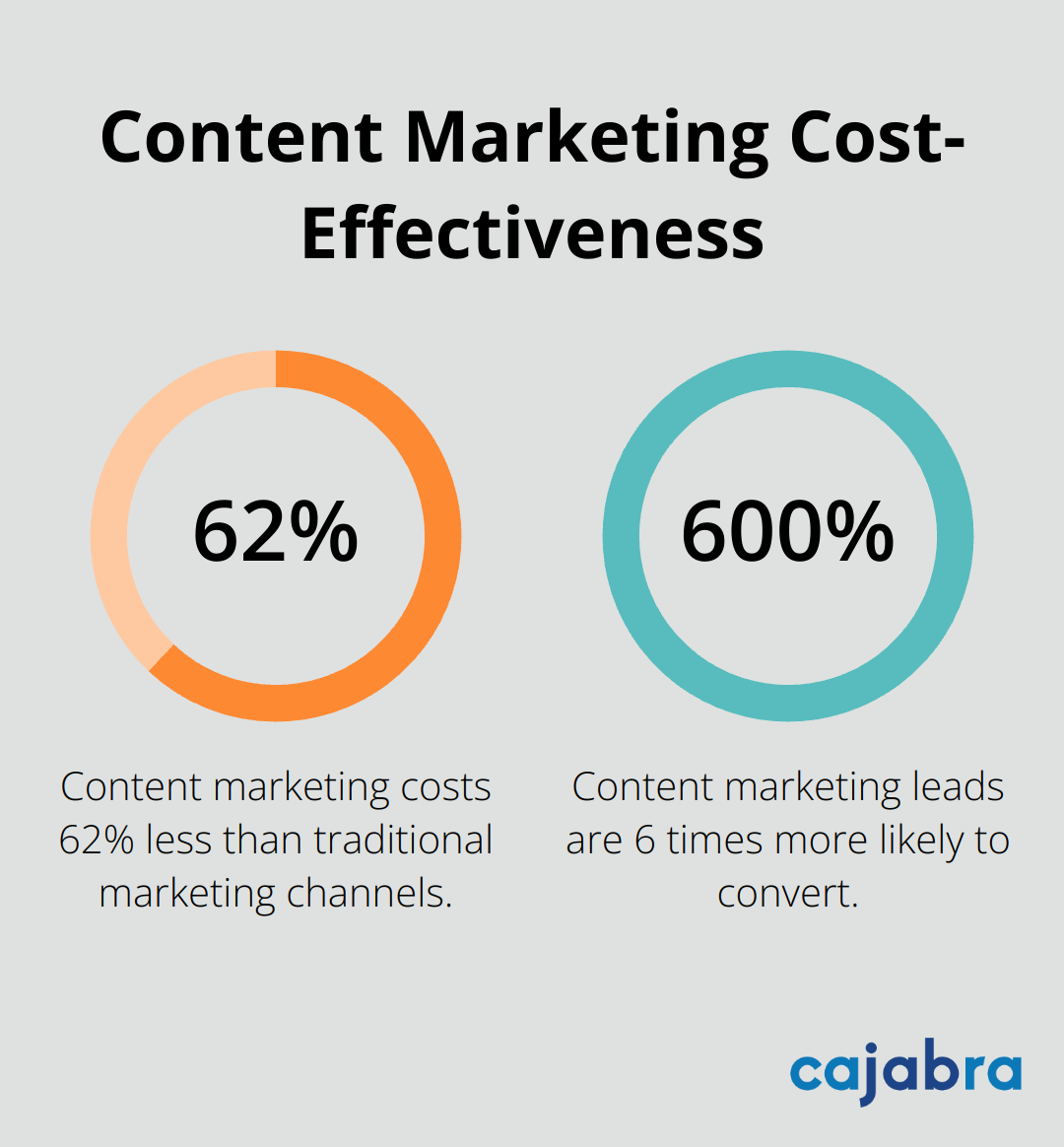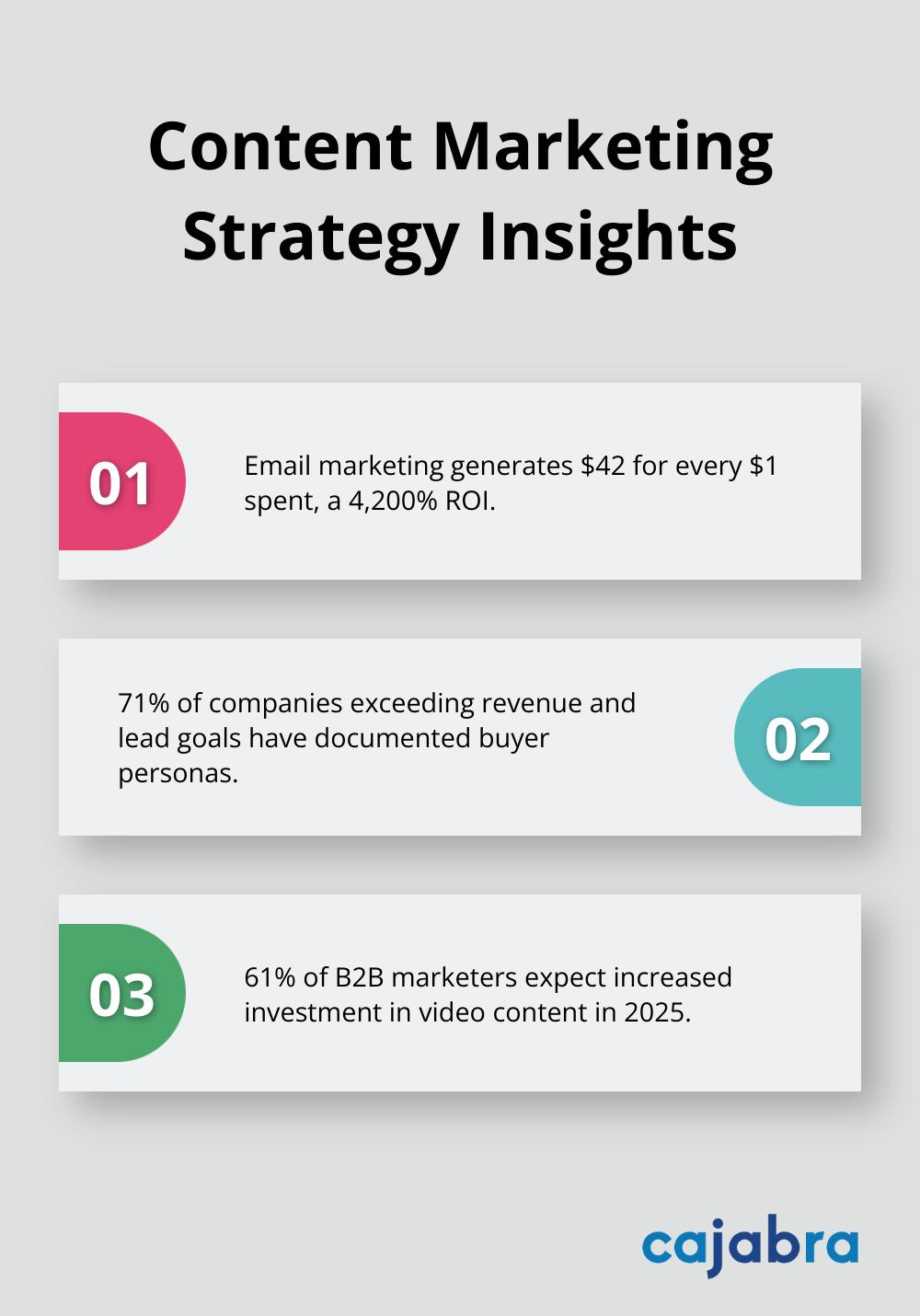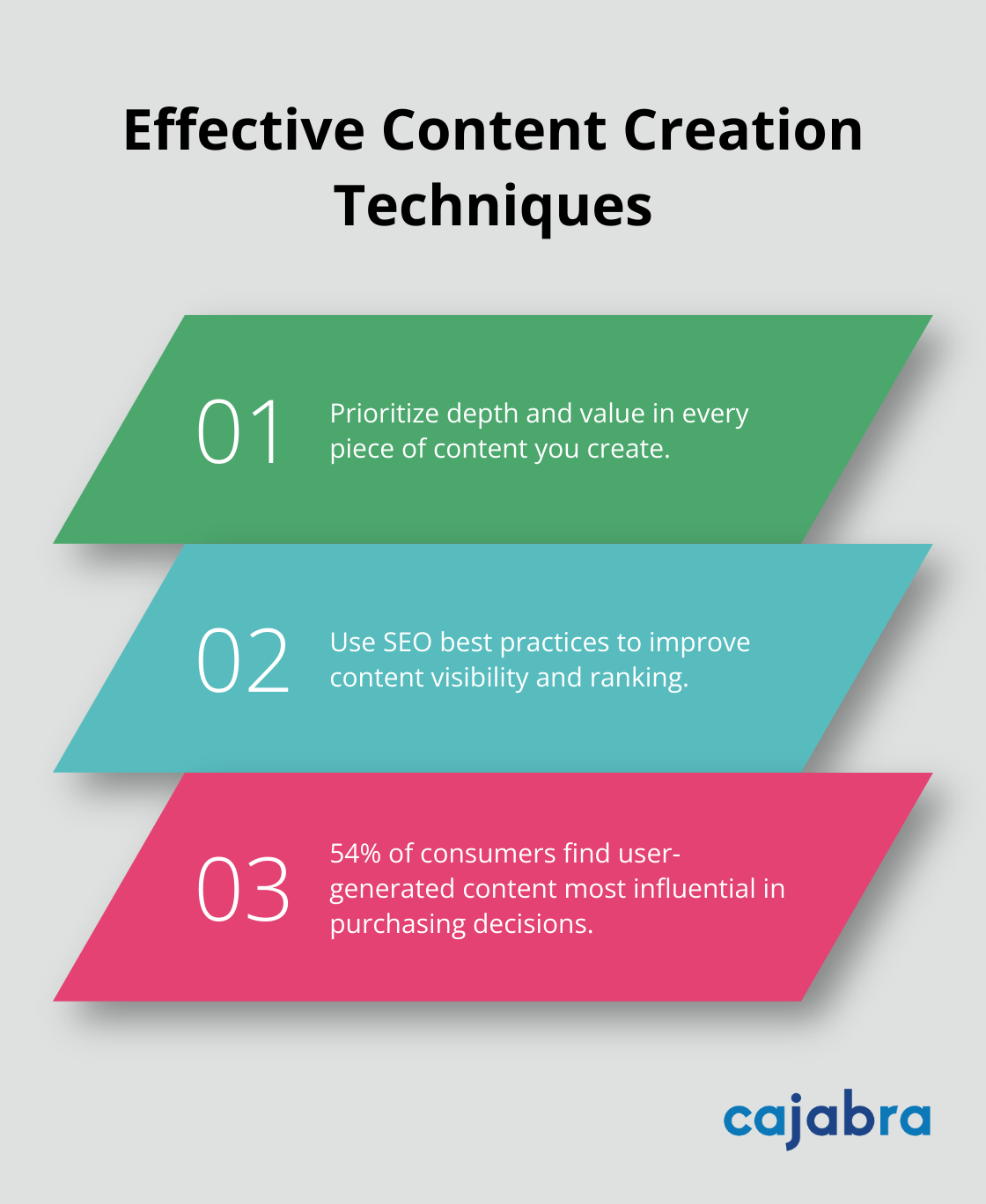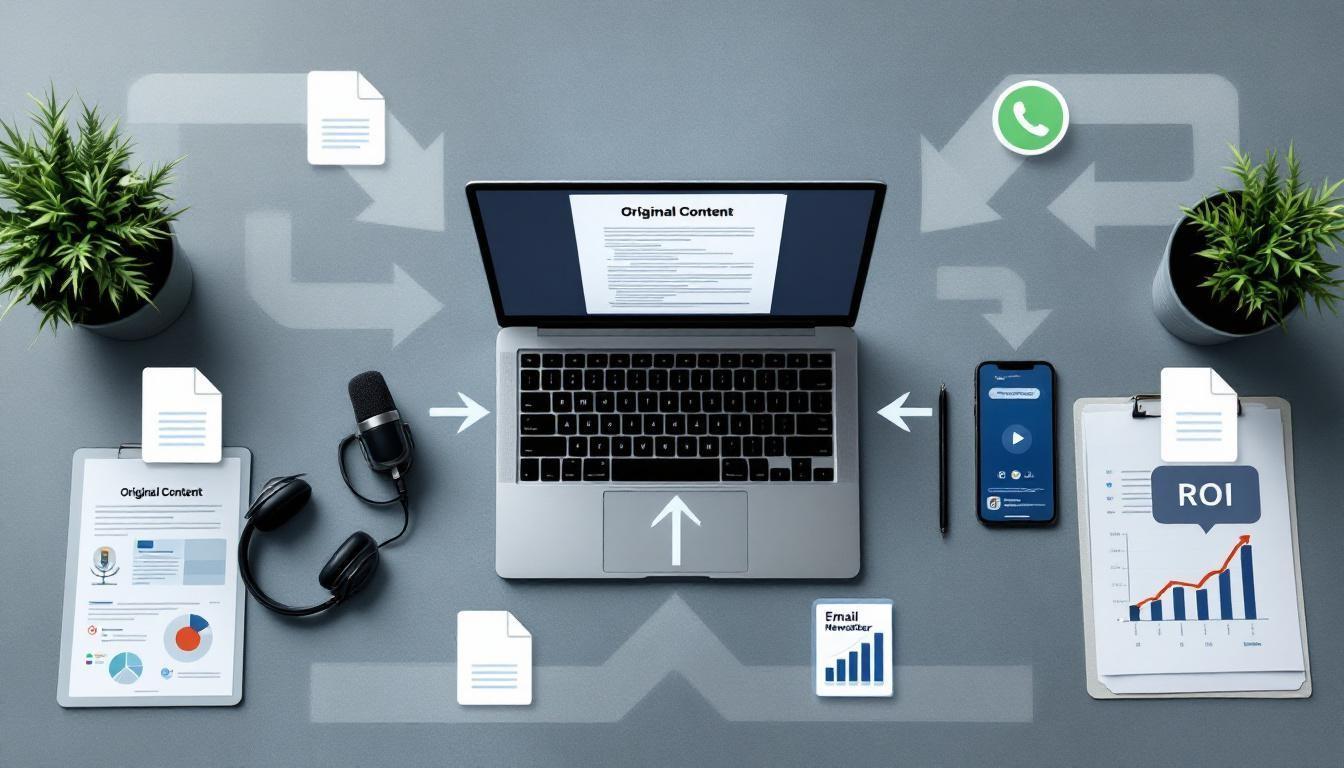
Content marketing for small businesses is a game-changer in today's competitive landscape. At Cajabra, LLC, we've seen firsthand how powerful this strategy can be for growing companies.
Small businesses often struggle with limited resources, but content marketing offers a cost-effective way to reach and engage customers. In this post, we'll explore practical techniques to leverage content marketing and help your small business thrive.
Content marketing is a strategic approach that focuses on the creation and distribution of valuable, relevant, and consistent content. This method aims to attract and retain a clearly defined audience. For small businesses, it serves as a powerful tool to build brand awareness, establish authority, and drive customer engagement without excessive costs.
Small businesses often operate with tight budgets and limited resources. Content marketing offers a cost-effective solution to these challenges. Content marketing costs 62% less than traditional marketing channels, and these leads are 6 times as likely to convert. This makes it an ideal strategy for small businesses looking to maximize their marketing return on investment (ROI).

Different content types resonate with various audiences. For small businesses, blog posts, social media content, and email newsletters often yield the best results. While backlinks are still important for SEO, they shouldn't be the only strategy. Additionally, the Data & Marketing Association reports that email marketing generates $42 for every $1 spent (an impressive 4,200% ROI).
The success of content marketing hinges on understanding your audience. To create effective content, start by developing buyer personas. These detailed profiles of your ideal customers help you tailor your content to their needs, interests, and challenges. A study by Cintell reveals that 71% of companies who exceed revenue and lead goals have documented personas.
Content marketing shifts the focus from hard selling to providing value. This approach builds trust and positions your small business as an industry authority. It not only attracts potential customers but also encourages them to return for more information. The key lies in consistently delivering helpful, informative content that addresses your audience's specific pain points and questions.
As we move forward, let's explore how to develop a robust content marketing strategy that aligns with your small business goals and resonates with your target audience.
Define specific objectives for your content marketing efforts. Most B2B marketers (61%) expect their organizations' investment in video to increase in 2025. Make your objectives SMART (Specific, Measurable, Achievable, Relevant, and Time-bound). For instance, set a goal to increase organic traffic by 25% in six months or generate 50 new leads monthly through content marketing.

Develop detailed buyer personas based on demographic data, psychographic information, and behavioral patterns. They help you identify gaps in the market, understand your competitors' strengths and weaknesses, and segment your audience effectively. Use tools like Google Analytics and social media insights to gather audience data. Conduct surveys or interviews with existing customers for deeper insights.
Create a content calendar as your roadmap for consistent content creation and distribution. Plan topics in advance, aligning them with your business goals and audience interests. Tools like Trello or Asana can help organize your content calendar effectively. Include a mix of content types (blog posts, videos, infographics, and podcasts) to cater to different audience preferences.
Focus on platforms where your target audience is most active. For B2B businesses, LinkedIn might prove more effective, while Instagram could work better for visually-oriented B2C brands. Don't overlook email marketing - it remains one of the most effective ways to reach your audience directly.
Increase your content's visibility through search engine optimization (SEO). Use keyword research tools like SEMrush or Ahrefs to identify relevant keywords your audience searches for. Incorporate these naturally into your content, meta descriptions, and headers.
As you implement these strategies, you'll notice a significant improvement in your content's performance and reach. The next step involves creating compelling content that resonates with your audience and drives engagement. Let's explore effective content creation techniques in the following section.
High-quality content addresses audience pain points effectively. Orbit Media's research indicates bloggers who invest more time in their posts often see better results. We prioritize depth and value in every piece we create.
Content marketing extends your reach across multiple platforms. Transform a blog post into social media snippets, an infographic, or a short video. This strategy caters to diverse content consumption preferences and optimizes resource utilization.
SEO best practices improve content visibility. Use Google's Keyword Planner to identify relevant keywords and integrate them naturally. Search engines favor comprehensive, well-structured content. Try to create longer-form pieces (1500+ words) when appropriate, as they often rank higher in search results.
Narrative techniques make content engaging and memorable. Share customer success stories, behind-the-scenes glimpses, or industry-related personal anecdotes. This approach humanizes your brand and strengthens audience connections.
Encourage customers to create content for you. User-generated content (UGC) saves time and builds trust. A Nosto study reveals that on average, 54% of consumers report that user-generated content is the most influential when making fashion purchasing decisions. Consider contests, customer testimonials, or user-submitted product photos to leverage this powerful tool.

Content marketing for small businesses is a powerful strategy that can transform your company's growth trajectory. You can elevate your brand's visibility and engage your target audience meaningfully through a solid strategy and effective content creation techniques. Successful content marketing requires a clear vision, well-defined goals, and a deep understanding of your audience.
Content marketing is a long-term investment that yields substantial returns over time. As you provide value to your audience, you'll see increased website traffic, improved lead generation, and enhanced customer loyalty. We at Cajabra, LLC have witnessed the transformative power of content marketing for small businesses (our specialized marketing services for accounting firms have helped numerous clients secure retainer-based clients).
Now is the time to take action. Start implementing these content marketing strategies in your small business. Focus on producing high-quality, valuable content that addresses your audience's needs and pain points.



